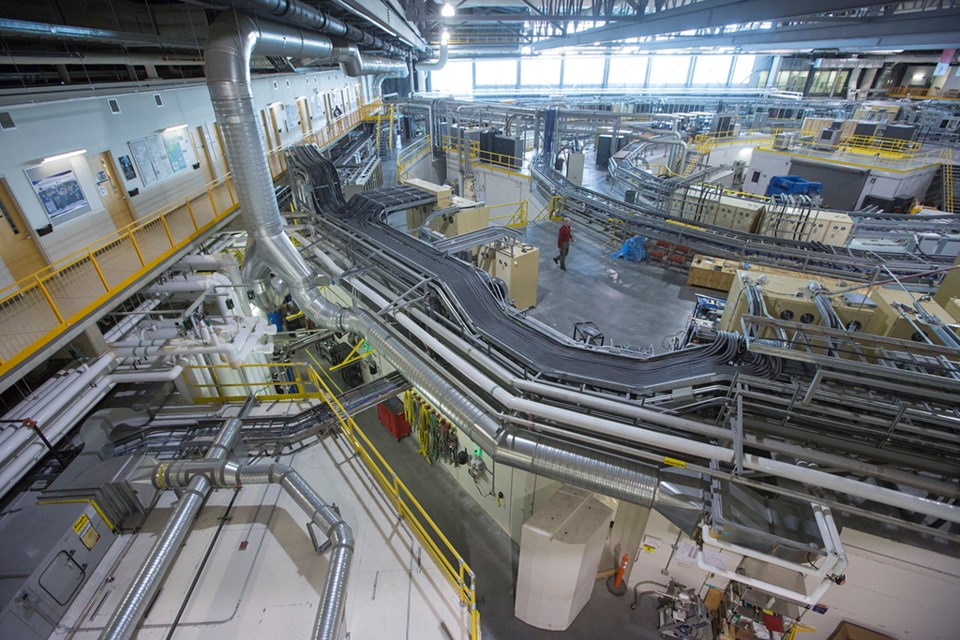SASKATOON – CERN, the University of Saskatchewan (USask) and the Canadian Light Source (CLS) are paving the way for a new accelerator for world-class research, according to a press release.
The CLS and CERN have high-tech facilities that accelerate particles to help scientists to probe matter and to understand the origins of the universe. These capabilities can also find applications beyond research in fundamental physics, such as to help address global problems like food security, cancer and climate change.
The three organizations have signed a memorandum of understanding (MoU) for the Future Circular Collider (FCC) Feasibility Study.
The international accelerator community sees value in creating a new facility with higher energy capacity, which would allow for even more advanced scientific studies. The higher the energy, the more information to which scientists will have access.
CLS, USask, and CERN are planning for a future accelerator with sensitivity to energy scales an order of magnitude higher than current accelerators.
In 2020, the European Strategy for Particle Physics Update requested that the feasibility study of the FCC integrated programme be delivered by the end of 2025. The EPPSU stated that "such a feasibility study of the colliders and related infrastructure should be established as a global endeavour and be completed on the timescale of the next strategy update."
CERN, together with its international partners, launched the feasibility study in 2021 with a view to investigate the technical and financial feasibility of the FCC at CERN.
“We warmly welcome CLS and the University of Saskatchewan to this endeavour and we look forward to the ensuing collaboration, thus increasing international co-operation as a prerequisite for success,” says Emmanuel Tsesmelis from CERN International Relations.
Ongoing research and development activities, supported by the H2020 FCC innovation study, include concrete regional implementation scenarios in collaboration with host state authorities, accompanied by machine optimization, physics studies and technology research and development.
“These activities offer the vision for a world-leading high-energy physics infrastructure for the 21st century, pushing the particle-physics precision and energy frontiers far beyond present limits," says Michael Benedikt, the FCC Feasibility study leader.
"The success of the FCC relies on strong global participation and we warmly welcome the CLS and the University of Saskatchewan joining our efforts and contributing with their expertise in the efficient and sustainable implementation of these machines.”
The international partners will investigate the feasibility a future electron-positron collider at CERN, which Canadian scientists would be able to use. The physics, engineering and technology of such a pioneering accelerator ring at CERN can be applied to a future ring for the Canadian light source community.
“Collaboration is key in science,” says Mark Boland, CLS machine director and USask associate professor in the College of Arts and Science. “We are working together to develop ambitious next-generation accelerator projects.”
Thanks to an ongoing partnership, Canadian researchers and students have access to research infrastructure at CERN. In return, CERN receives their support and expertise.
Boland teaches courses on accelerator and synchrotron physics at USask. “With this MoU, USask students will be able to apply the skills they learn from their studies while doing their own research on future CLS and CERN accelerators."
Getting hands-on experience at world-class facilities is invaluable training for these future accelerator physicists.
“Being able to help plan for and use a collider like this is a dream come true, particularly working with experts from around the world,” says Patrick Hunchak, who is completing a master’s degree at USask.
Later this month, Hunchak will be at CERN to present in a workshop for students around the world who will be working on the Future Circular Collider Feasibility Study. In July, researchers and students will gather in Saskatoon when the CLS and CERN will be hosting an International Accelerator School.



